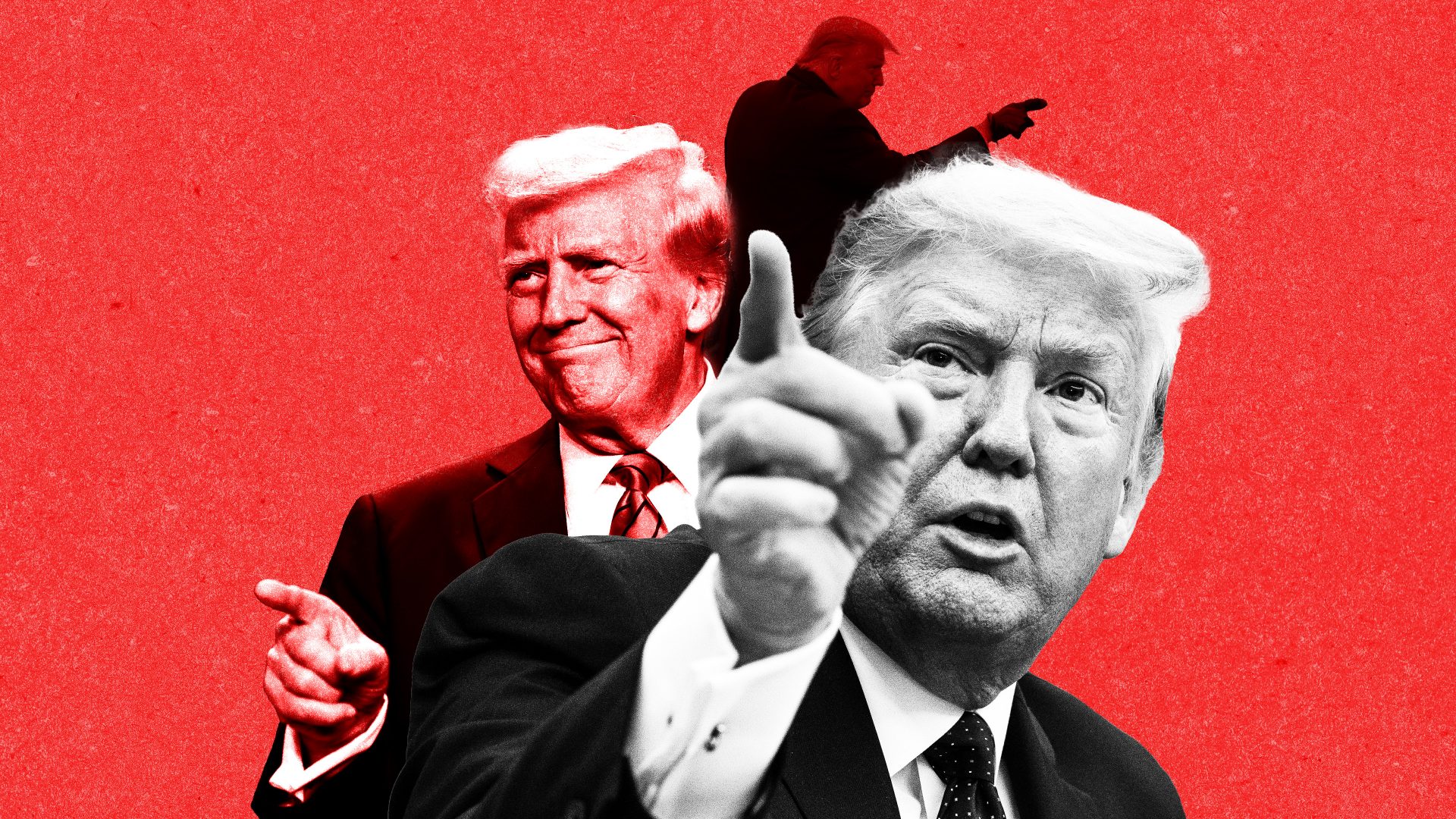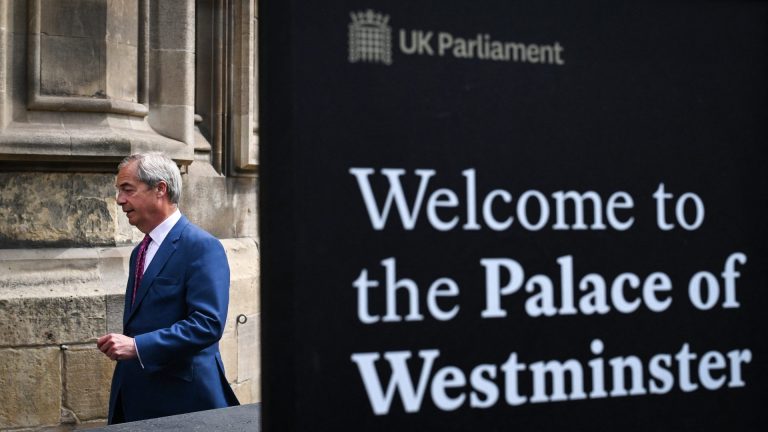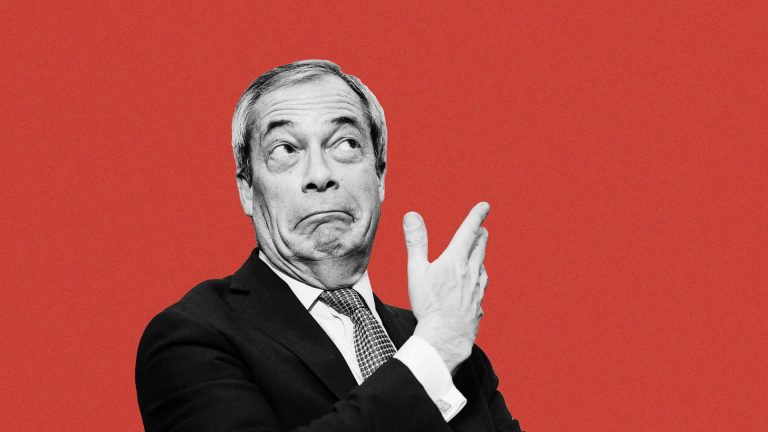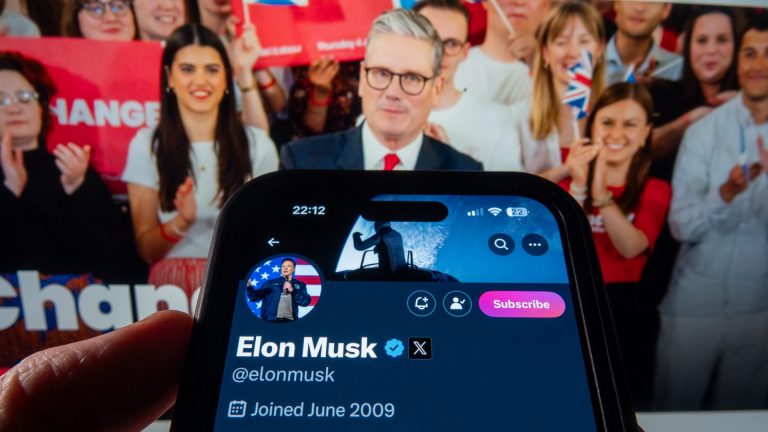The second that Trump surrendered, announcing that the worst of his tariffs would be paused for 90 days with the exception of those levied on China, the markets surged.
Only a few hours before his announcement to reverse his policy, the president took to his own social media platform to inform his followers that, “This is a great time to buy” along with the stock market code for his own company’s shares. When he announced that the tariffs were being paused, markets surged.
Shortly afterwards, the Democrats’ House Committee on Financial Services tweeted: “The President of the United States is literally engaging in the world’s biggest market manipulation scheme.”
In footage posted on social media by a White House official, Trump is seen crowing in the Oval office in front of a crowd of his courtiers about the amounts of money that had been made by members of his entourage. Pointing to the investor Charles Schwab, Trump tells the crowd that “he made two and a half billion today”, before pointing to another individual and announcing “and he made nine hundred million”. The crowd laughs.
The Democrat senator Adam Schiff announced that he was launching an investigation into the way in which the policy was so suddenly reversed. “Who knew what the president was going to do?” asked Schiff, in a video released on social media. “And did people around the president trade stock knowing the incredible gyration the market was about to go through?”
But any profit from the chaos will be cold comfort for Trump. He cannot hide the fact that he was forced into a humiliating reversal. He has claimed that countries are queueing up to negotiate with the White House, but governments everywhere will see that Trump has blinked before the tariff talks have even started.
Beijing is showing no signs of blinking at all, despite the tariffs of 125% on its exports to America. Instead it responded by imposing an 84% tariff on American goods. The Chinese Communist party is not going to back down. It has not pulled itself back onto the world stage in order to be humiliated by Trump.
It also has a strong hand, America’s largest export to China is soya beans, which can be easily sourced elsewhere. America’s farmers will be hit hard by this. In return, China exports billions of dollars of cheap goods into the US, a process by which America has effectively imported deflation. America’s remaining manufacturers also rely heavily on components imported from China.
Despite his ludicrous attempt to present the market rally as some kind of success, what Trump discovered to his cost is that you can intimidate universities, lawyers, scientists and fellow politicians, but no one can threaten the bond market. James Carville, Bill Clinton’s adviser once famously quipped that if he were ever to be reincarnated, he would want to come back as the bond market. “You can intimidate everyone,” Carville said.
And it intimidated the hell out of Trump. His disastrous policies had sent the bond market into a state of collapse. The consequences of this are increased borrowing costs for the US government, which began moving alarmingly upwards, from 4% to 4.5%, and showed few signs of stopping.
Governments need the bond market’s trust so they can borrow cheaply in order to finance the deficit. For America this is vital, as its deficit this year will be just under $2 trillion. But the higher the interest rate governments have to pay on their bonds, the more expensive that deficit becomes.
What made this all the more alarming is that, normally when the global economy starts to wobble, the American bond market usually improves as investors move their money into the dollar, the world’s reserve, “safe-haven” currency. When this happens, borrowing gets cheaper for America, not more expensive.
But the opposite was happening. Trump’s wild decisions were so damaging for the US’s economic reputation that investors were becoming less and less willing to lend to America.
China noticed this. Beijing’s key weapon in its confrontation with Trump is not tariffs, but the dollar. China has huge reserves of dollars and American government bonds, and currently holds around $760bn-worth of US Treasuries.
Beijing just needs to sell some of those Treasuries, or even simply threaten to sell some of them, or hint that it is swapping dollars for euros or Swiss francs or gold, and the markets will notice.
It seems that, if like America, you have a huge trade deficit and borrow from global investors to fund your deficit, the rest of the world has you over a barrel. It also appears that, in the spirit of grim opportunism, people around the president profited from the movement in market prices that were caused by his policies. If that turns out to be the case, we might just have seen the biggest stock market swindle in history.










